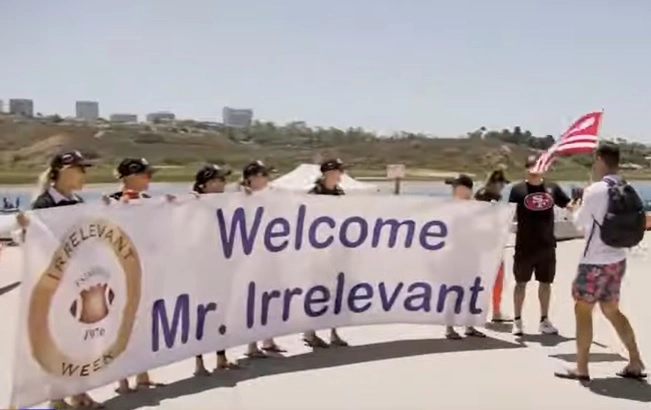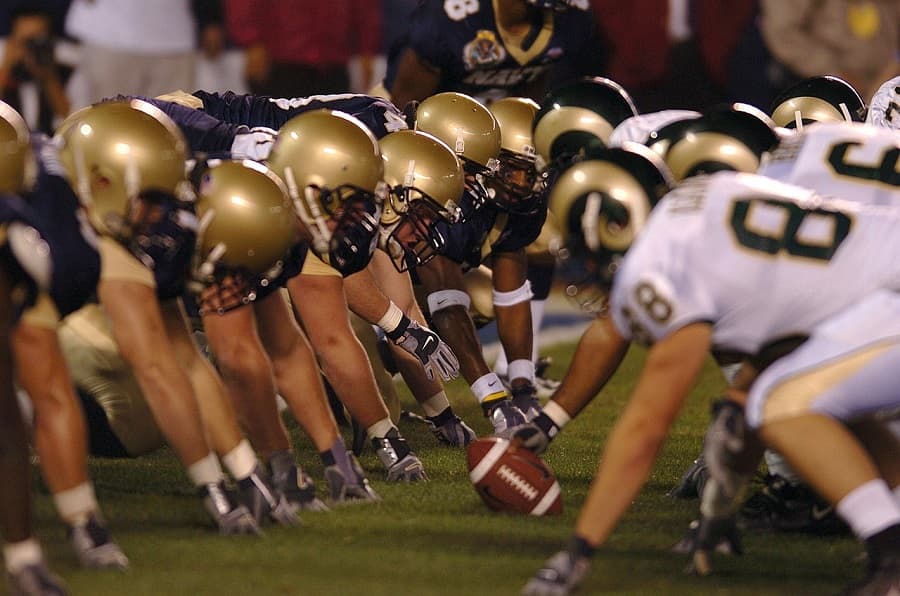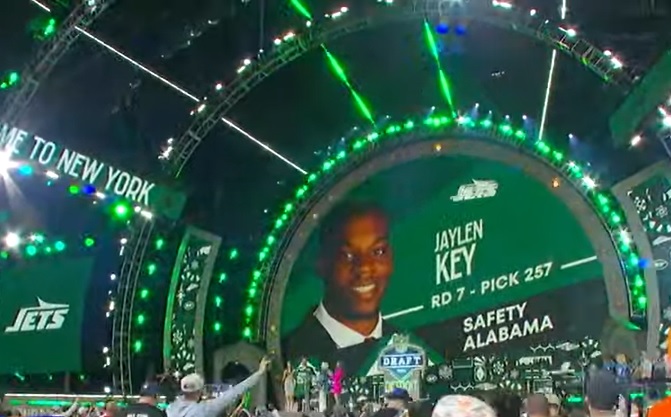Mr. Irrelevant and co: what can HR learn from the American football job fair?
What HR professionals can learn from the world's most watched job fair, the NFL Draft at the end of April, when American football teams select their top college recruits. The weakest club gets first pick. The last player standing is named Mr. Irrelevant. In the past, he has had more than one career. Written by István Tamás Papp, HR expert.

Although, for my part, I like and compare the functioning of the HR portfolio of activities to a spider's web (because, in the case of a spider's web, any thread/strand you touch affects all the other elements, for example, it sets them in motion), but the US football (NFL) draft, like a good veterinary (pony) horse, can also be a great zoological illustrative example, if not in its full scope (only pony size..), but from recruitment, selection, performance appraisal to incentives, and more specifically positive and negative motivation, the interconnected, synergistic functioning of HR processes and systems - but also highlighting the flaws, dysfunctions, morbidities, and potential for error in HR.
Of course in our country 999 out of 1000 (but we can safely say out of a thousand) citizens have no idea what the NFL DRAFT is, but it is the most important and most popular annual sporting event in the US sports scene, perhaps even the most important and most popular after the Super Bowl. The Draft is so much a "sport" and an "event" that for many teams and their fans it is even more important than the games themselves, as it is the place where professional clubs select the players who have proven themselves, especially in college leagues, young players who have already proven themselves at university level, but are still amateur (i.e. not playing for money), and who, if not as 'starters', are still 'newcomers' in the professional environment, they want to integrate into their own professional (i.e. with players already employed for a salary) adult teams.

The NFL is recruiting from universities
But how does this "HR" veterinary steed, hard to comprehend with a European brain, and perhaps too boisterous in our eyes, swelling with self-confidence and running absolutely top of the line, gallop:
- all 32 professional clubs in the American Football League (NFL), ranked from worst to best, from last place in the league to defending champion, based on their performance in the previous year (which TERA - their individual performance rating system - would be worth a lengthy, stand-alone HR treatise in itself),
- a three-day player muster in front of a breathtaking public show (which, as a hacker, I would best describe as a job fair reminiscent of the Hollywood Oscars, broadcast live on TV),
- in a spectacular display, selecting prospective employees (o'pardon the players) one by one over seven rounds, but with the club with the worst performance in the previous season being the first to choose(!);
- by fishing out the best, most talented, most successful, most or best suited athletes for the club in question from a pool of around 300 applicants,
Last Selected
Although most of the attention is always given to the top of the recruitment list, the first selected players - they get the best "job" contracts and the brightest career visions - but most interestingly from a motivational point of view, since 1976 the last selected player has been "celebrated": he is Mr. Mr Irrelevant, who in turn receives the Lowsman Award, a small bronze statue of an American football player knocking the ball out of his hand, a parody of the Heismann Trophy for the best college player. This year's recipient is Jaylen Key of Alabama.

Jaylen Key has been named this year's Mr Irrelevant
As much as the Lowsman Award's gunyness ("negative" motivation) proclaims, Mr. Irrelevant is not expected to do much good or stand out in their NFL careers, yet there have been some of the Irrelevant who have finally been able to rise from the bottom to the top:
- In 2022, for example, the last pick was Mr. Irrelevant, Brock Purdy, the quarterback of Iowa State University, who, even with his selection as the two-hundred-and-sixty-second overall pick, exceeded the preliminary expectations for his draft performance, as analysts believed that no team would want him because of his short stature ("only" 6'6"...), his slowness, and the weakness of his throws. But his above-average accuracy, his outstanding mental skills, his good and quick decision making in tough situations, and his commendable work ethic (are we listening, dear harriers, to the individual KPIs, key performance indicators used in the decision?
- Or there's Marty Green, who made the Super Bowl as the first and only Mr. Irrelevant until 2023 - at the end of the 1996 season - or Jim Finn, who, despite his insignificance, was able to play a stint as the Giants' starting fullback. And Bill Kenney, who was the only one to win the Lowsman Award in the first place, was the real Mr Irrelevant, who was unable to attend his first training camp because of a permanent injury, so the last-rounder Kenney, who was the last pick in the draft, became the only Mister Irrelevant to make the Pro Bowl, playing in the all-star game between the American Conference and the National Conference.
- And then there are those who couldn't even make it to Mister Insignificant (i.e., the roster was not wanted by any sports club employer) and still became successful in the NFL. Perhaps the most famous of these is Kurt Warner, who was only a starter for a minor league college team in his senior year of college, and who produced absolutely no numbers (performance numbers!) that would have attracted the interest of any NFL team, and thus was not selected at all in the 1994 draft - and started working as a grocery store clerk after his college years. Then in 1998 he was invited to the national championship as the Rams' third-string quarterback (sorry, quarterback), and the rest is sports history: he spent 12 years in the NFL, led his team to a Super Bowl victory in 1999, was a two-time Super Bowl participant, was twice named MVP (Most Valuable Player), and was a five-time Pro Bowler. And in 2017, although he wasn't even considered "insignificant" by recruiters, evaluators, and selectors at the time, he was finally voted into the Hall of Fame of the "most significant" in American football.
Why is perhaps best explained in the words of Tibor Benedek, three-time Olympic, European and world champion water polo player: "I never had a particularly good feel for the ball, I never played football, basketball well, I never threw the ball particularly big, and today I throw it even smaller. I'm not particularly strong or smart, I don't swim very well and my water retention is average. <...> If I had to sum up the reasons for my success, I would just say that I always wanted it better. That's my talent." - Well, fellow harriers, I think that's what we have to learn to find in the job market!
What I would like to highlight at the top of my head is that I always wanted to be the best.
